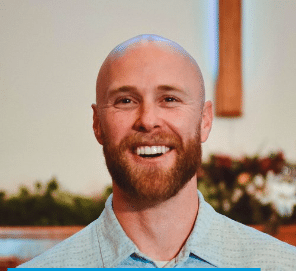Article
Living as a Missionary in Your City
Living on mission requires intentional community engagement. Here are three principles to live by as you seek to plant your new church to the glory of God.

Mission-Minded Ministry
New churches should be started with the explicit goal of seeing new souls brought into the kingdom of God. The implication of this concept means that in the beginning stages, a church planter should primarily see his role as missionary-pastor, not pastor-missionary.
For this notion to be true, and I believe it is, then the church planter must be a missionary who equips his core team to be missionaries in their target location.
The Call of Christ
As we started our church, we had three guiding principles of how each of us would live as missionaries in our city. We came to these principles from Matthew 9:10-13:
While he was reclining at the table in the house, many tax collectors and sinners came to eat with Jesus and his disciples. When the Pharisees saw this, they asked his disciples, “Why does your teacher eat with tax collectors and sinners?” Now when he heard this, he said, “It is not those who are well who need a doctor, but those who are sick. Go and learn what this means: I desire mercy and not sacrifice. For I didn’t come to call the righteous, but sinners.”
Each of these principles focused on a particular need and can be adopted in any location.
1. Living as a missionary in your city means you have proximity with a consistent presence.
We see that Jesus is in the home of those who were not of the religious elite. He is called the “friend of sinners” in Matthew 11. In Luke 19, Jesus moves toward Zacchaeus, the chief tax collector (read: sinner), in proximity. Paul, when planting a new church, frequently went to the center of town and got in proximity with people.
Church planters move towards people, get into proximity with them, and keep coming back with a consistent presence. One of the key heart cries of our day is the need for friends. In the words of Tim Keller, we are made to be fully known and fully loved.
In an age of disembodied and disconnected relationships, good missionaries—with an unwavering consistency—live in the presence of those who are far off from Jesus.
Practically speaking, our team enjoyed hobbies that created space for this type of friendship. Things like CrossFit, pickleball, golfing, basketball, softball, music venues, and more. We also tried to have predictable calendars that put us in the same places over and over: co-working spaces, coffee shops, grocery stores, salons, and more.
The message we were communicating with our lives was this: “We love you, so does Jesus, and we’re not going anywhere.”
2. Living as a missionary in your city means you pursue meaningful relationships.
One thing I believe about Jesus is that He didn’t socialize for the sake of a good social life. The reason we are in proximity is so that we can go deeper in relationships. As Jesus sat around the table in Matthew 9, surely the conversation went beyond the weather and the fishing report.
Jesus wanted to know the needs, desires, affections, hopes, joys, worries, and wounds of those He was in proximity with. The same is true for us. The people around us don’t just have need of friendship, but also of belonging. Belonging communicates you’ve moved from friend to family. And the meaningful relationship means I want to know and help you in ways beyond our shared interests or commonalities. I want to know and help you in ways that communicate the love of God to you.
Practically, this meant trying to take hospitality very seriously at our church by opening our homes, lives, and tables to recline with those far off from Jesus. While practicing hospitality, we tried to move the conversation to the heart level. What are people struggling with? What are people hopeful for? What stories are people believing? And we did this because we genuinely wanted meaningful relationships with the people Jesus came to seek and save.
3. Living as a missionary in your city means you proclaim a clear gospel.
As Jesus moved towards sinners and increased the depth of relationship, He made His intentions clear: “Now when he heard this, he said, ‘It is not those who are well who need a doctor, but those who are sick. Go and learn what this means: I desire mercy and not sacrifice. For I didn’t come to call the righteous, but sinners'” (Matthew 9:12-13).
Jesus knew that the answer to every single question He had—struggles, needs, desires, affections, hopes, joys, worries, and more—was found in understanding and believing the gospel. For the unrighteous, Jesus came to make them righteous. For the sick, Jesus makes well. And for the dead, He brings them to life.
We must drive the conversation around our tables to the finished work of Jesus Christ on the cross and in an empty tomb. The life, death, and resurrection of Jesus for sinners is the answer to every question the people in our cities have.
Practically, at our church, this meant praying frequently for courage. It is one thing to frequent CrossFit, build a relationship, and host a dinner. It is another to boldly proclaim Jesus in the place of sinners. But this is the task God demands of us. For every demand, He has a supply. His Spirit is gracious to indwell and empower us to have the courage to proclaim. As we proclaim, the Spirit is gracious to make dead hearts alive in Jesus.
To Equip and Empower
To live as a missionary in your city, as a new church plant, means the three guiding principles for you are proximity, pursuit, and proclamation.
How you do that is flexible for your particular context and core team. But I believe these are necessary principles to walk in if we want to see our baptismals full and our churches multiplied.
So ask yourself these three questions:
- How can I get in proximity to people in my location?
- How can we pursue relationships that go deeper in our location?
- In what ways can we make the gospel clear and understandable to those in our location?
As the Lord grants clarity toward the answers to these questions, begin equipping your people to know the answers to these questions, praying for God to empower you all to live these out for His glory and for the good of those in your location.




